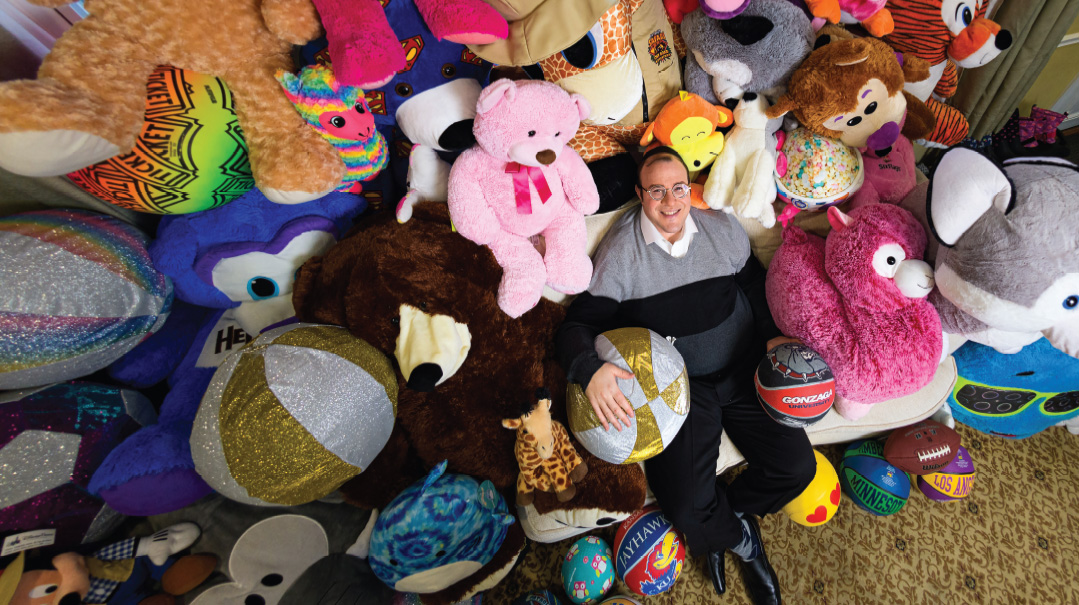Ahead of the Game
| December 13, 2022Eliezer Ginsberg’s life hasn’t been all fun and games, but he’s found the winning strategy to put a smile on sick kids’ faces

Photos Naftoli Goldgrab
W
hen my two-year-old son Ezra fractured his femur this past spring, he became well-known around our Clifton, New Jersey, neighborhood as the little guy with the T-shirt, diaper, and cast on his leg. One day at the park, a neighbor offered to cheer him up by gifting him a stuffed animal.
“My husband and I collect them,” Lesli Ginsberg casually explained.
I was expecting a small teddy, but when she emerged from her house, she was holding a giant aquamarine puppy. It was bigger than Ezra! His eyes widened and he hugged it instantly. Ezra gave his new friend permanent residence on our couch, and in the midst of the madness of being confined in a cast for four weeks, his fluffy new friend gave Ezra comfort.
Later, I learned that Lesli’s husband Eliezer actually won the stuffed puppy. While he spends his days as a controller at New York-based Centers Healthcare overseeing facilities’ finances, in his off-time, he’s a boardwalk game maven. Eliezer estimates that over the last few years he’s won more than 150 basketballs and the same number of plush toys. As he’s accumulated more prizes, Eliezer has transformed his talent for arcade games into a one-man chesed initiative, distributing the prizes to children who might benefit from them.
Oops! We could not locate your form.







